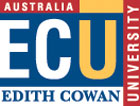Bachelor of Psychology and Counselling
Bachelor of Psychology and Counselling
If you have an interest in the science of psychology and in counselling, this course will introduce you to the professional art of counselling with the added bonus of preparing you for advanced psychology training. You’ll acquire skills to analyse and research behaviour and to be able to explain interactions…
Categories
COURSE DESCRIPTION
If you have an interest in the science of psychology and in counselling, this course will introduce you to the professional art of counselling with the added bonus of preparing you for advanced psychology training.
You’ll acquire skills to analyse and research behaviour and to be able to explain interactions between people and their environment. The course is also a great springboard to postgraduate studies in psychology and counselling.
Course learning outcomes
Apply broad discipline knowledge to a range of theoretical and technical psychology and counselling situations.
Think critically to analyse, interpret and conceptualise/synthesise complex psychology and counselling knowledge and problems.
Think creatively to anticipate challenges and generate psychology and counselling relevant solutions and responses.
Use digital technologies and psychology and counselling related literacies to access, evaluate and synthesise relevant information from multiple sources.
Communicate psychology and counselling knowledge and ideas clearly, coherently and with independence.
Demonstrate a global outlook with respect for cultural diversity, including Indigenous cultural competence.
Work collaboratively and demonstrate initiative to implement social, sustainable, and ethical values through appropriate psychology and counselling methods.
Demonstrate autonomy, accountability and judgement for own learning and scholarship.
Career Opportunities
Employment opportunities include counselling, human resources management, criminal justice, education, rehabilitation, business, mental health, and the administration and provision of social services. That means jobs or roles that involve understanding and guiding human behaviour, showing empathy and compassion, and displaying skills such as the ability to evaluate the needs of a client, write formal reports, and keep accurate and organised records.
Possible future job titles
Counsellor, Public Sector Worker, Government Agency Worker, Market Researcher, Children and Family Service Provider, Marketer, Human Resource Worker, Statistician, Mental Health Services Worker, Financial Service Worker
REQUIREMENTS
There are various ways to meet our admission requirements, such as:
Secondary school results
Successful completion of one year of tertiary study from a recognised institution
Completed Diploma program from a recognised institution
English competency requirements:
IELTS Academic: An overall band minimum score of 6.0, with no individual band less than 6.0. (Results are typically valid for 2 years and online tests are not acceptable.)
TOEFL iBT: 70 (no individual score less than 17)
TOEFL Paper-Based Test (PBT): Minimum score of 550, including Test of Written English of 5 or better. (Results are typically valid for only 2 years.)
Pearson Test of English (PTE) Academic: 52, with no scores less than 50. (Results are typically valid for only two years.)
EDUCATIONAL INSTITUTION
Edith Cowan University (ECU) is a large, multi-campus institution serving communities in Western Australia and internationally.ECU was awarded university status in 1991, but despite its relative youth, the University has a proud history of more than a century of service to education in Western Australia and is recognised for its teaching and learning, excellence in research, and partnerships with the community.We have more than 23,300 students, including around 18,500 undergraduates and 4,800 postgraduates. Approximately 3,600 international students attend the University, originating from 104 countries.We are a progressive University with courses developed through ongoing industry input, and employing lecturers who engage fully with their students. We’re a university that knows while knowledge is important, understanding comes from experience –experience that enables you to adapt what you’ve learned to whatever opportunities come your way. Because that’s when you do more than just survive in this world. You thrive in it.




